If you’ve been injured in a car accident, talk to an experienced auto accident lawyer as soon as possible.
In Florida, you can claim injury after a car accident for 14 days. For minor injuries, you have 14 days to seek medical care. If you don’t get medical treatment within 14 days of the accident, you can no longer claim injury.
Table of Contents
And, around 2 million of those injuries are permanent.
If you’ve been involved in a car accident, you might not realize immediately you are injured. Shock, adrenaline and other factors can cause injuries to go unnoticed for hours or even days. For your own health and safety, it’s important that you seek medical attention if you think you’ve been injured.
Below, we’ve provided a thorough list of common injuries that are caused by car accidents, but this information does NOT replace a proper diagnosis by a trained medical professional. If you suspect you have been injured, please seek medical help FIRST.
A back injury or spinal cord injury not only has physical challenges but mental and emotional ones as well. Some of the most minor car accidents can result in big injuries.
We want to help! Fill out this form for a Free Case Review! Or call (813) 258-4878 to speak with a car accident lawyer in Tampa.
When you understand the significance of your injuries, you can better prepare for the future in order to live a healthy and happy life. The prognosis for back injuries can feel overwhelming, but many of these injuries can be overcome with the help a physician or medical team. Below is a detailed look at the most common back injuries Tampa car accident lawyer, Michael Herron, represents in court.
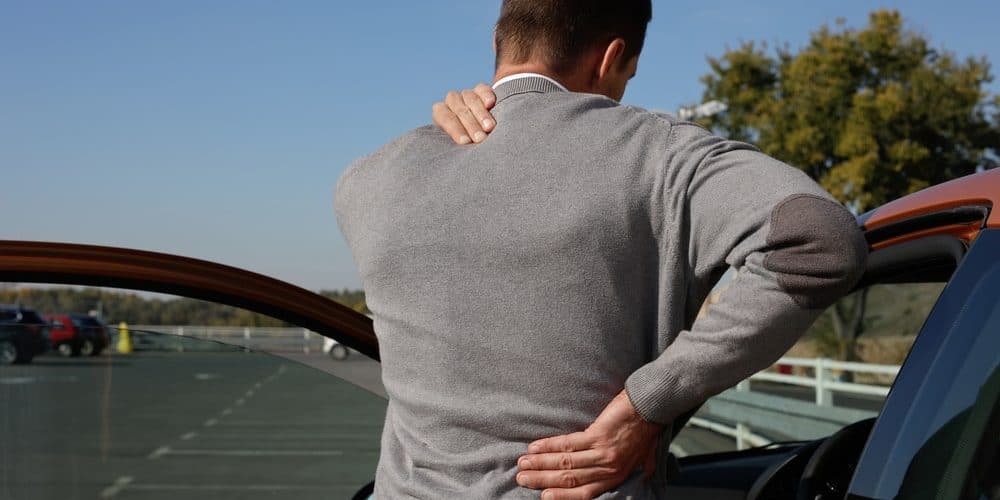
Common Back Injuries & Causes Of Back Pain After A Car Accident
Thoracic Spine Injuries
Spine Health defines the thoracic spine as 12 vertebrae that make up the middle region of the skeletal spine. Injuries that impact this area range from minor strains to major spinal cord damage.Injuries to the thoracic spine, from a car accident, are typically more complicated because the vertebrae attach to the rib cage. More specifically, these kinds of injuries can result in widespread issues throughout the midline of the body impacting the ribs, nerves, and soft tissues.
Car accidents are one of the leading causes of thoracic spine injuries due to the amount of force that a person will feel in a crash.
Symptoms of these injuries will range from numbness to tingling sensations throughout the body. Some people may experience weakness in their extremities or even complications with bladder and bowel movements. The tell-tale sign of an injury like this, however, is the intense pain associated with a thoracic spine injury.
The treatment of these injuries will range from chiropractic or physical therapy treatments for minor injuries. More severe damage to the thoracic spine may involve surgical procedures depending on what part of the vertebrae is affected.
Lumbar Back Injuries
The lumbar spine begins at the bottom of the thoracic spine and extends to the sacrum. Injuries in this region of the back may include fractures, strains, sprains or disk issues.Low back pain can be a bear to deal with, but low back pain from a car accident can feel impossible to overcome due to its persistent nature.
Motor vehicle accidents can produce a number of low back injuries that can severely impact a person’s life. These injuries can be minor in scope such as straining muscles, or, they can produce more significant injuries such as fractures.Treatment will depend on the severity of the injuries involved and may range from physical therapy and lifestyle shifts. to more aggressive procedures like surgery.
Herniated Disks
According to the Mayo Clinic, a herniated disk occurs when the soft inner tissue of the vertebrae pushes beyond the skeletal structure, placing pressure on the nerves.
Victims with this kind of injury (along with doctors who treat these patients) can attest to the amount of pain a person experiences with this type of trauma. Most of the pain comes from the amount of pressure on the surrounding nerves that can radiate to other parts of the body. In fact, a herniated disk in the lumbar spine may result in sciatica pain or shooting pain that affects your legs.
Treating herniated disks is not straightforward, for instance, such as the treatment of a muscle strain. Some treatments may include physical therapy and specific muscle strengthening activities. More serious cases may call for procedures like cortisone shots or nerve blocks. The most severe cases may land someone in a surgical room for a spinal fusion.
Spinal Cord Injuries
The Mayo Clinic states that spinal cord injuries can impact any part of the spine and result in damage to the actual spinal cord. The nerves associated with the structure may also be damaged and cause significant discomfort for a victim.
Spinal cord injuries may be one of the most devastating results of a car accident. This is not only because of the pain these types of injuries can produce, but also the lasting effects that they may have on the rest of the victim’s life mentality, emotionally and physically.
A spinal cord injury will vary in severity, and the lasting impact depends on the specific damage done. When someone experiences this type of injury, they may develop chronic disorders and pain, or even worse, total loss of mobility. A diagnosis is usually classified as either a complete or incomplete injury and may leave a person partially, or entirely, paralyzed.
Other outcomes of spinal cord injuries can include weakness, numbness, loss of bladder or bowel control, trouble with walking or balance, impaired breathing and nervous system issues. Treatment will depend uniquely on the injury and the condition of the person before the injury occurred.
Bone Fracture Injury
Bone fractures, according to the Cleveland Clinic, happen when significant force is applied to a bone, resulting in a change to its structure.
Spine bone fractures are a common result of car accident injuries. The spine is an incredibly fragile structure despite how well it can protect your spinal cord. Some of these fractures may cause a victim significant pain, and often will be relieved after the bone has repaired itself. At times, pain can persist after the healing process which is why bone fractures have an unpredictable prognosis.
Mechanical Back Pain After Car Crash
The Cleveland Clinic says trauma in any portion of the spine can result in mechanical back pain. This can include the spinal joints, the vertebrae, disks or surrounding soft tissues.
Pain associated with mechanical back traumas usually impact the soft tissues the hardest, such as muscles and ligaments. Other symptoms may arise, for example, muscle spasms or acute sensitivity issues. This type of injury will usually heal on its own, but recovery can still take weeks or months.
Long-Term Impact of Back Injuries
- Spinal Stenosis – Is a condition where the spinal column narrows over time due to many factors, one of which is a traumatic injury. A doctor is not likely going to diagnose you with spinal stenosis as a result of your car accident. However, a car accident injury can contribute to spinal stenosis if the damage is not properly cared for or rehabilitated. Treatment for spinal stenosis usually involves physical therapy and medications, with the most severe cases needing surgical intervention.
- Cognitive Complications – Cognitive dysfunctions occur when one part of the brain has trouble communicating with other parts of the brain. Some cognitive disorders include dementia, amnesia, and delirium. Studies are now showing that people who suffer from major back injuries are experiencing cognitive complications later in life. Wellness practitioners encourage people with spine traumas to take their recovery seriously to help prevent cognitive complications in the future.
- Depression – The American Psychiatric Association defines depression as a negative medical illness that affects the way a person feels or acts. These feelings typically cause a person to feel a deep sense of sadness or emotional distress. Research on how back pain links to depression is becoming more prominent in the medical field. The direct connections are not yet clear as to why depression develops, but researchers know that things like improper eating and sleeping are contributing factors. Back pain also contributes to how a person interacts socially with others or how they participate in activities. Often, the lack of either social interaction or loss of activities a person enjoys can cause mental or emotional distress.
Legal Matters of Back Injuries
The National Spinal Cord Injury Statistical Center found that motor vehicle accidents contribute to about 40% of spinal cord injuries a year. The research of physicians and chiropractors finds that roughly 10% of accident victims suffer a disability as a result of a car accident.
Back injuries from vehicle accidents are a serious legal matter depending on the details or facts of your case. Insurance companies spend billions of dollars on these kinds of injury cases every year. Negligence determines who is at fault in an accident and cases are typically heard in a courtroom.
It is essential to follow the instructions of your physicians when it comes to the treatment of your car accident back injury. Not only will this help you to secure a healthier future, but seeking proper medical treatment will be especially crucial if you plan to pursue a legal path.
If you or anyone you love has experienced back pain from a motor vehicle accident, we encourage you to speak with a Tampa car accident lawyer, so you understand your legal rights.
A negligent party may be responsible for your injuries, and you may be eligible for compensation.
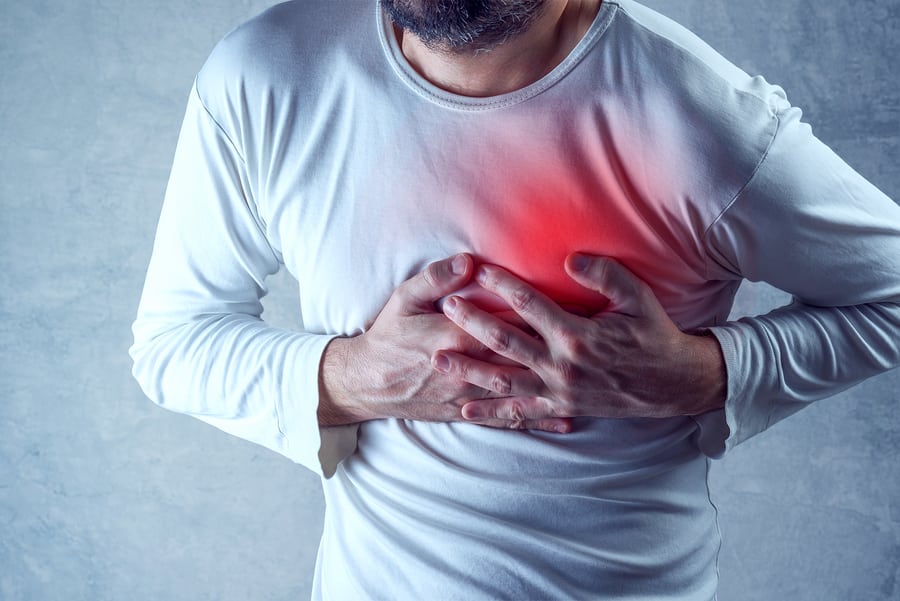
Chest Pain After A Car Accident
In the United States, especially Florida, car accidents are one of the leading causes of serious and fatal injuries.
One of the most vulnerable areas of the body in a car accident is the chest.
In a car accident, serious chest injuries are very common, even if the airbags deploy properly, and a safety belt is worn. Many car accident lawyers report that they have seen victims, even of minor car accidents, who have serious and painful chest injuries.
Here are a few of the injuries that we commonly see:
- Bruised Ribs
- Fractured Ribs
- Muscle Strain
- Chest Pain Due to Internal Organ Injuries
- Chest Pain Due to Heart Injuries
- Chest Pain Due to Lung Injuries
Why Chest Injuries are Common in Car Accidents
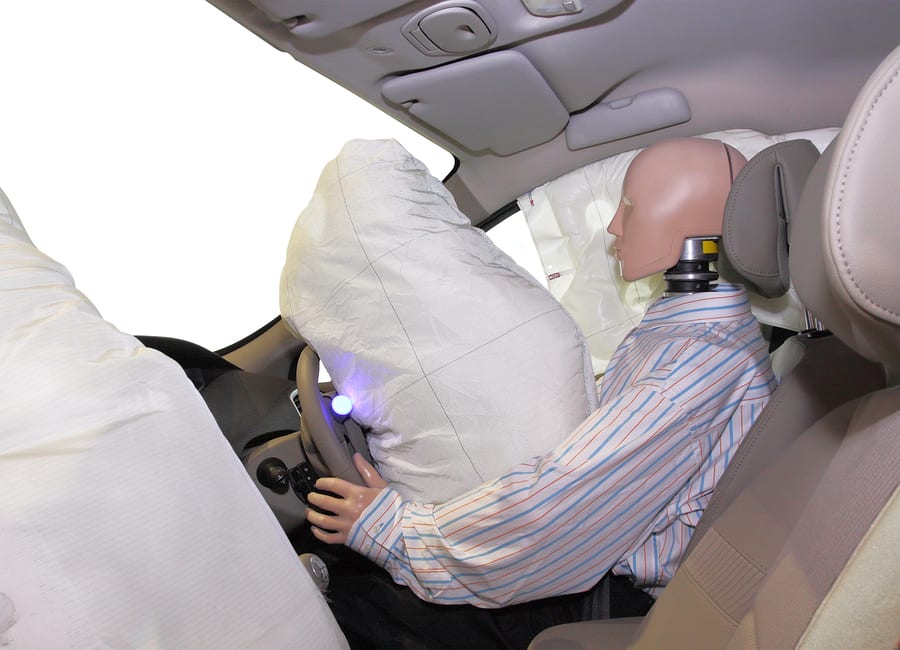 According to medical professionals, the reason that chest injuries are so common in car accidents is because of the positioning of both the driver and the passenger in the vehicle.
According to medical professionals, the reason that chest injuries are so common in car accidents is because of the positioning of both the driver and the passenger in the vehicle.
The driver sits close to the steering wheel, while the front passenger is typically close to the dashboard.
This positioning means that, when the accident occurs, each person is thrown forward due to the inertia of the vehicle.
Their chests may come into direct contact with the steering wheel, the dashboard, or even simply slam into seat belts or shoulder harnesses, causing injury.
Surprisingly, chest injuries are common in many different types of accidents including lower-speed car accidents, motorcycle accidents and higher-speed collisions.
This is because when the airbags do not deploy, the seat belt alone may not be enough to prevent the chest from slamming into the dashboard or the steering wheel, causing serious traumatic injury.
Common injuries that our clients have gotten as the result of motor vehicle crashes:
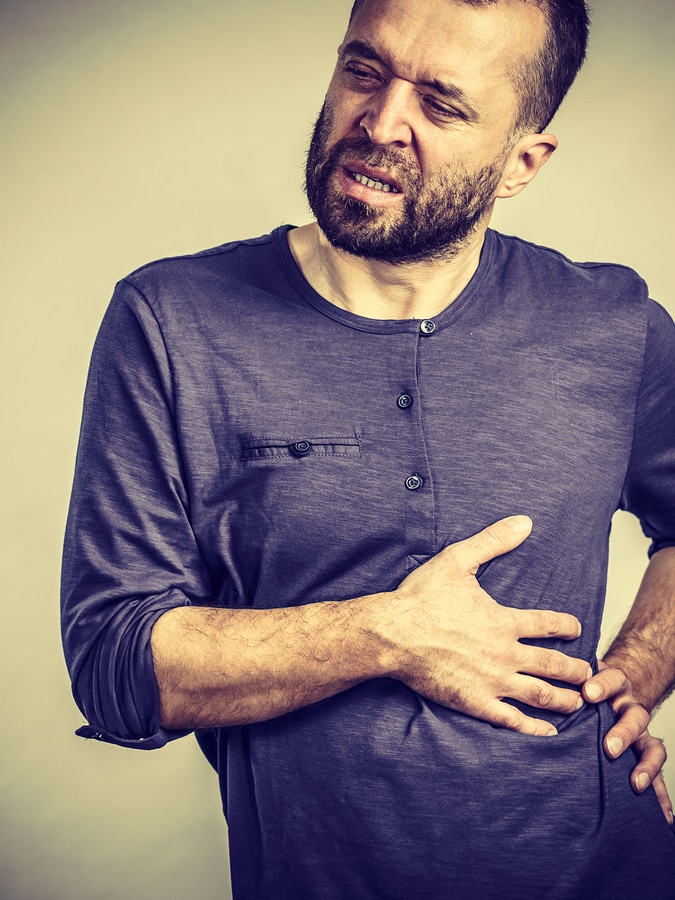 Bruised Ribs
Bruised Ribs
A bruised rib is exactly what it sounds like.
When your ribs and sternum impact a hard object, such as the steering wheel or dash, they may be damaged by this force, and the surrounding soft tissue may become damaged and bruised, causing a dull, aching pain.
The pain may come and go, or be intermittent, depending on your movements and the position of your body.
Fractured Ribs
A broken rib is usually noticeable almost immediately, as it causes a tremendous amount of discomfort.
As opposed to a bruised rib, which typically feels like a dull, aching pain, fractured ribs tend to feel “sharp” and may cause shooting pains. It’s common to feel additional pain when you try to breathe in deeply. Deep breaths causes your rib cage to expand, which puts pressure on the broken rib.
The ribs can be broken because of an impact with the steering wheel or dash, or even just because of the seatbelt, which arrested your movement during the collision.
A broken rib is a very dangerous condition.
If you think your rib is broken, you need to get help right away, because there’s a risk that your rib could puncture your lung, heart, or another major internal organ of the chest. Go to the emergency room immediately if you believe you have a broken rib.
Muscle Strain
A simple muscle strain is another common cause of chest pains. The body reacts to sudden movements, impacts, and jerks by tensing up before the movement – and it usually does so without you even having to think about it.
This means that your muscles can become strained after an accident, leaving your chest in pain. The symptoms of a muscle strain may seem like a bruised rib, but you can tell them apart. Muscle strains are typically more “sharp” and hurt more when you’re doing something like trying to lift an object. They may also feel “stiff” and “tight.”
If you have a muscle strain, you should see a doctor. Most muscle strains are minor, but more severe strains can result in major tearing of the chest muscles. Tearing might require medical attention and physical therapy for proper healing.
 Chest Pain Due to Internal Organ Injuries
Chest Pain Due to Internal Organ Injuries
This is the most severe type of chest injury that can occur in most car accidents. You never want one of your internal organs to be injured after a car accident – and if you suspect some kind of internal injury, you need to get medical help right away.Chest Pain Due to Heart Injuries
The heart is commonly injured in car accidents, because the ribs may impact it, or a broken rib could even cause direct damage to the heart. A heart injury requires immediate medical attention.
The most common indicator of a heart injury or heart trauma is dull chest pains, which can be either constant or intermittent, especially if these pains are located directly above the heart.
If you are experiencing dull chest pains that are intermittent or causing discomfort, you should consult a doctor immediately.
Chest Pain Due to Lung Injuries
The lungs can become bruised by a heavy trauma, which may cause swelling, internal bleeding, and the buildup of fluid. This condition can be life-threatening.
The symptoms of a bruised lung include chest pain, as well as shortness of breath, severe coughing bouts, increased heart rate, shallow breathing, and difficulty or pain when breathing.
A bruised lung can be very dangerous, so you should get medical attention right away.
You may also experience a punctured lung, should a broken rib pierce your lung. This is also a life-threatening condition.
A punctured lung occurs when some kind of material, most often a broken rib, pierces part of your lung. This causes the lung to collapse, with air escaping between the lung and the wall of the chest.
The most easily-identifiable symptoms of a punctured lung include extreme shortness of breath, chest and shoulder pain, decreased sounds of breathing, lightheadedness, or an extremely high heart rate. The skin may also seem bluish, which is caused by inadequate oxygen reaching the heart.
Many people don’t want to get checked out after an accident because they aren’t in pain immediately.
It is possible that due to adrenaline, you may not feel pain in that very moment. However, you may start feeling the brunt of your injuries after a while.
Apart from chest pains, if you are experiencing fatigue, headaches, shortness of breath or dizziness, you could have sustained an injury. The earlier you consult a doctor, the better. A thorough checkup can identify any injuries that need attention and your earlier diagnosis can improve your prognosis.
How Can I Prevent Chest Injuries In Car Accidents?
The most important thing you can do is wear your seatbelt.
Your seatbelt is the only thing that is protecting you from the steering wheel or dashboard.
In a high-speed collision, the airbag alone will not be enough to prevent your chest from impacting the dash. Especially if you’re in a frontal collision, and the steering column is pushed towards you. Your risk of a serious traumatic injury is much higher if you don’t wear your seatbelt.
And while it’s true that seat belts can cause chest injuries (like bruised and fractured ribs) these injuries will always be less severe, compared to the injuries you would have received, had you not been wearing your seatbelt.
You may also want to get your airbags inspected, particularly if you drive an older vehicle that was made in the late 1980s or 1990s. While airbags are designed to be functional for a long time, electrical faults or other issues may cause them to deploy improperly.
Modern cars will have an “SRS” light on the dash, which indicates the functionality of the airbag. If this light is illuminated, there may be a problem with the airbags. Drive your car to the nearest repair center immediately to have it inspected, and make sure that it’s working properly. Don’t risk your life by driving a car with non-functional airbags.
While these two steps will not eliminate the risk of chest injuries in car accidents, they will help you ensure that your injuries are less severe – and help keep you safe on the road.
What Should I Do If My Chest Hurts After A Car Accident?
Before you do anything else, get medical help.
If your car accident is serious and an ambulance is on-site, get transported to the nearest hospital. A visit to the ER is the only way to make sure that any major injuries are taken care of.
Always put your life first – and make getting proper treatment your priority.
If your chest has started hurting several hours or a few days after your accident you should still see a medical professional. Get x-rays and diagnostic tests performed, to assess your health and the extent of your injuries.
The above situation is actually quite common. After a car accident, there’s a lot of adrenaline flowing through your body, which may distract you from the true extent of your injuries. You may not realize that you’re in pain until after you get home and have some time to decompress.
Seeing a doctor for help after a car accident isn’t just a good idea to protect your health. A proper diagnosis can be helpful evidence when you’re filing a claim or if you decide to file a lawsuit for additional damages.
If you have any confusion regarding your rights after a car accident or if you want to file a complaint against anyone for the accident, contact Tampa personal injury lawyer, The Law Office of Michael Herron, for a free evaluation.
Call Now: (813) 258-4878
Any time you’re in a car accident, it’s important to seek medical help for any injuries you may be experiencing. The information contained in this post does not replace medical advice.
Only a medical professional can assess the severity of your injuries, or make sure that you’re okay.

Headache After A Car Accident
No one wants to get involved in a car accident, but unfortunately they still happen. Some accidents are minor “fender benders” in which no one is injured, but other accidents result in life changing injuries or even death. Regardless of the severity of an accident, it’s important to pay attention to any changes in the way your body feels afterwards.
Physical Symptoms After A Car Accident
Sometimes it might take a day or two for an injury to present symptoms, so don’t assume that everything is okay just because you feel alright immediately following the incident.
As the body is being jerked during or immediately after a collision, there are many different types of injuries that can occur. Injuries such as broken bones and spinal cord injuries can be life threatening or at least life changing – especially if not treated properly.
Other injuries like whiplash or bruising are typically not as serious, but should still be evaluated by a medical professional. It’s important to take note of any changes in the way your body feels, specifically, new aches and pains because they might be the only indication of a more severe injury. For example, a headache after a car accident can be caused due to different reasons.
Whiplash
The most common reason of a headache caused by whiplash is that the muscles, nerves and tendons that are present around the neck develop some kind of inflammation. As these nerves are connected to the neck muscles of your body and then to your head, any damage to these nerves causes a headache. It can be identified by the pain that usually starts from the neck, goes up the back of your head and then to the rest of your head. This pain can last from a few minutes to a couple of hours.
Head Trauma
Another reason of a headache after car accident is that you experienced head trauma during the wreck. We’ve all probably experienced hitting our head on something like a cabinet or shelf, etc. at some point in time, so it’s possible to take a blow to the head that hurts, but does not result in a serious head injury. However, if you believe or know that you hit your head in a car accident, it is important to seek medical evaluation to ensure that haven’t sustained a serious head injury – especially if you’re experiencing headaches.
Hypertension
You may experience a headache due to hypertension. Hypertension is elevated blood pressure and can occur for many reasons including stress. It’s possible for blood pressure to increase to dangerous levels and it’s crucial to have it evaluated and treated by a medical professional as it can be a symptom of more severe conditions.
If you have any confusion regarding your rights after a car accident or if you want to file a complaint against anyone for the accident, contact Tampa personal injury lawyer, The Law Office of Michael Herron, for a free evaluation.
Call Now: (813) 258-4878
Any time you’re in a car accident, it’s important to seek medical help for any injuries you may be experiencing.
The information contained in this post does not replace medical advice. Only a medical professional can assess the severity of your injuries, or make sure that you’re okay.
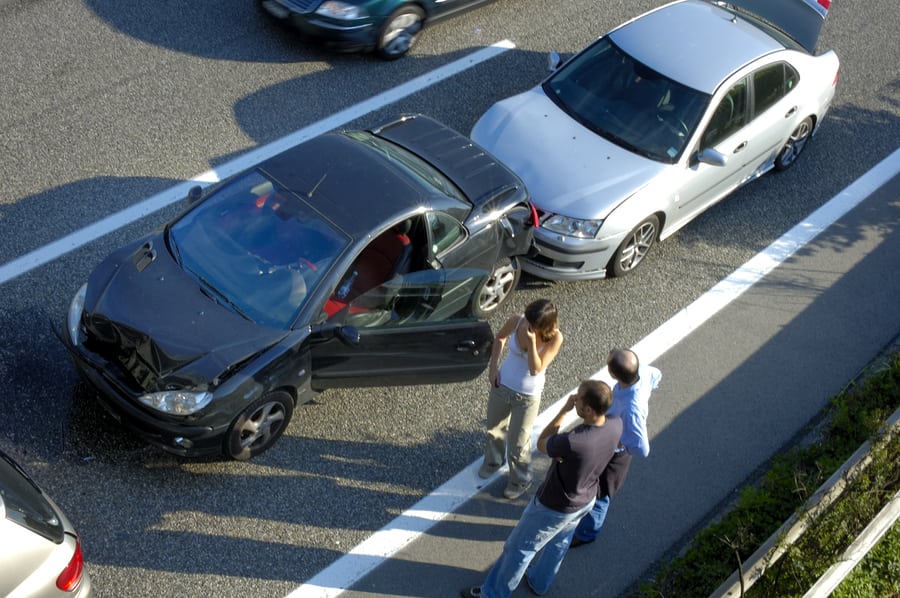
Hip Pain After A Car Accident
Surviving a car accident is not easy – the incident can be upsetting emotionally, but also can result in serious injuries. In a car accident, your body passes through a big trauma that may have shocking effects on the health of your hips. It’s possible that you don’t feel any hip pain immediately after a car wreck, but within a few days it can become obvious that something isn’t right – if and when this happens, seek medical treatment because symptoms such as mild discomfort can indicate a larger issue. Here are some issues that can cause hip pain after a car accident:
Dislocation of the Hip
Hip dislocation is one of the most common causes of hip pain after car accident. A person’s hip can be dislocated when they bump into the dashboard with great force. This forces will dislocate the hip of the person sitting in the car. Major symptoms of hip dislocation involve reduction of mobility, extreme pain and an abnormal position of the hip. However, there is a need to treat this dislocated hip on urgent basis otherwise, it could affect the blood circulation through the legs. Moreover, it is also important to avoid any kind of permanent injury.
Strains in Muscles
A car accident involves a lot of pressure and a trauma that can directly affect the health of your muscles. If can tear your muscle fibres especially the fibres of your hips and this will then cause strain in your muscles. Muscle strain can be detected from a severe pain, swelling and weakness of different body parts.
Fractures Due to Stress
Car accidents happen with great forces. These forces in result into the stress in various parts of the body and they can especially damage the health of your hips. However, fractures tend to be extremely painful to the extent that it would be difficult to ignore or not take notice of the discomfort.
Symptoms of Hip Pain
As you know, most of the weight of your body depends on your hips. However, the hip injuries resulting from car accidents vary a lot depending on the severity of the accident and the placement of the person inside the car. The common signs of hip pain include difficulty in movements, pain in legs, hips and back. Most people also feel pain in the knees. If the severity of the accident is greater, it can cause extreme stress and could result in a hip dislocation. If after a car accident, you feel any of these sign, you should immediately contact your doctor.
If you have any confusion regarding your rights after a car accident or if you want to file a complaint against anyone for the accident, contact Tampa personal injury lawyer, The Law Office of Michael Herron, for a free evaluation.
Call Now: (813) 258-4878
Any time you’re in a car accident, it’s important to seek medical help for any injuries you may be experiencing.
The information contained in this post does not replace medical advice.
Only a medical professional can assess the severity of your injuries, or make sure that you’re okay.
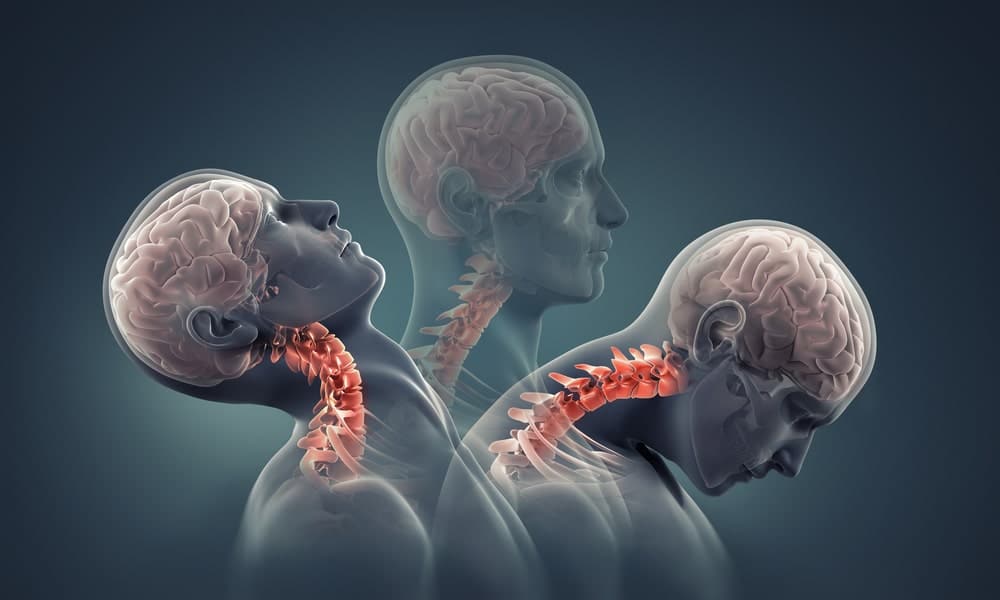
Neck Injuries & Neck Pain After A Car Accident
Car accidents can impact the course of our lives in a matter of seconds.
Not only will you be dealing with insurance claims, police reports and perhaps a legal matter, but you might also be managing a significant neck injury. These kinds of accidents can be challenging to overcome, but adding an injury to the list can make recovery even more overwhelming.
When the body is involved in a car accident, it can experience a significant amount of force that can impact the most vulnerable aspects of the body. We are going to discuss one of those sensitive body parts, specifically the neck, and the injuries that someone can experience after a car accident. Neck injuries can be intricate and even more complicated to heal from.
The Injury Outlook
Injuries of the neck are common after a vehicular accident. The American Law Center has researched that 42% of people involved in a car accident in the U.S. report neck pain as a result in their lawsuits. Further, the American Academy of Orthopedic Surgeons estimates that at least 40% of the people treated, experience life-long complications due to just one accident. Here is a more in-depth look at the neck injuries that someone can experience after an accident.
Whiplash
The doctors at Spine-Health define whiplash as the head first moving backward and then forward in a rapid motion. This fast pace action causes tremendous strain on the ligaments, muscles and spinal column.
The aftermath of whiplash is what most people will complain about after experiencing neck trauma. The neck is not the only body part impacted with whiplash; a sufferer may experience shoulder or upper back pain that radiates from the original injury. Others may experience myofascial pain in the head or jaw with spells of dizziness and headaches. Every whiplash trauma manifests differently from person to person, as well as the recovery period that follows post-accident.
While whiplash may be the most common injury after a car accident, they are one of the most difficult injuries to ‘see’ or prove. This is because whiplash is a soft tissue injury that isn’t visible in medical evaluations such as x-rays. Those that suffer whiplash will likely see recovery within a few weeks, but it is not uncommon for injuries to last months or even years according to medical studies.
Bone Fractures
The Cleveland Clinic defines bone fractures as a significant force placed on a bone that often changes the bone’s shape or contour.
Bone fractures after a car accident can result in a waiting period for the bones to recover (they can often do this on their own) or, in more severe brakes, may result in surgery. Fractures can happen in various parts of the neck, such as the cervical spine and vertebrae. The surrounding bones can also be impacted such as the collarbone or facial bones like the jaw.
Recovering from bone fractures will impact each person differently. Often, recovery is determined by the severity of the injury, the age of the person, and how many bones are affected. Smaller injuries may be able to heal in a matter of weeks, while more severe injuries may take up to a year or more. The pain associated with fractures is the body working to heal the damage, and typically happens in the soft tissues surrounding the broken bone.
Slipped, Herniated or Prolapsed Disk
Healthline defines this type of medical issue as when the inner portion of a vertebrae disk protrudes outside of the bone structure surrounding it.
You likely know someone who has experienced a slipped disk and are well aware of the pain associated with this injury. Once the disk protrudes outside of the bone, it places tremendous pressure on the nerves that surround the area. This is often why disk injuries are hard to pinpoint and can be even tougher to treat.
Symptoms of disk injuries go well beyond pain. It is common for those who suffer from this sort of injury to feel pain radiating into the arms or legs. Other people may experience pain that gets worse at certain times of the day or after prolonged instances of standing or sitting. What’s worse, muscle weakness tends to follow disk injuries with episodes of burning sensations and unexplained aches.
Treatment for herniated, prolapsed or slipped disks will vary depending on the severity of the injury. Some sufferers can see relief with physical therapy, medications or nerve blocks; while others with more severe cases may need a more aggressive approach such as surgery.
Bulging Disk
The Mayo Clinic defines a bulging disk as an event where the disk is compressed but doesn’t protrude outside of the spinal column (such as with a herniated disk we discussed above.)
Chances are a bulging disk will not impact you the same way a herniated disk will. More specifically, a bulging disk does not produce as much pain (typically) as a herniated disk. You may learn that you have a bulging disk only after getting medical attention after a car accident, as some have no symptoms. There are symptoms, however, that shouldn’t be ignored since bulging disks can lead to herniated disks over time.
Those who suffer from a bulging disk in the cervical spine (neck area) may complain of tingling in their extremities, such as their arms and fingers. Other symptoms may manifest as muscle weakness, such as arm strength or having a weak grip in the hands.
Diagnosis of a bulging disk happens through your doctor who may order procedures like x-rays, MRI or CT scans to reveal the issue. Treating bulging disks usually depends on the severity the sufferer is experiencing. Treatment usually reflects pain management through specific exercises, rest and weight management. For more severe cases, surgical procedures are often prescribed.
Muscle Spasms
Muscle spasms are another common injury after vehicle accidents. As the body protects itself and begins the healing process, these spasms may occur around impacted areas of the neck.
Most people are familiar with muscle spasms in various parts of the body. When someone experiences muscle spasms after a car accident, they are not just annoying and repetitive, but can also be painful. These injuries are often overlooked, but shouldn’t be, as they can be a symptom to a more profound injury like a herniated disk.
Long -Term Impact of Car Accident Injuries
We’ve just discussed a number of common neck injuries that typically show up quickly after an accident. What is also important to factor in, are the long-term effects that someone can experience years down the road.
Spinal Stenosis
This condition is defined by the narrowing of the spinal column that places pressure on the nerves associated with the vertebrae.
Spinal stenosis is not a diagnosis you are likely to receive as a result of a car accident, but it is a reflection of what can occur in the long term from your injury. Spinal stenosis occurs when injuries aren’t given the proper care after an adverse event, such as a car accident.
Non-surgical options to treat spinal stenosis are usually at the top of the list when consulting a physician. You may be prescribed medications to support healing, offered some physical activities to slow down the progression, or ordered cortisone shots to ease any discomfort. Surgery is usually the last option to treat spinal stenosis which doesn’t have a 100% success rate.
Osteoarthritis
The Arthritis Foundation defines osteoarthritis as a condition impacting the cartilage function within the joints of the body.
As a long-term effect, osteoarthritis can develop in the neck after an injury or trauma. The consequences of osteoarthritis typically include stiffness and limited mobility. Others may experience joint swelling or loud clicking noises from the neck.
There is no cure for osteoarthritis which is why complete care after a car accident is so very vital. Undiagnosed neck injuries that someone has learned to live with can have a serious long-term impact on someone’s life and overall well being.
The Legalities of Neck Injuries
The American Academy of Orthopedic Surgeons has documented the lifelong impact of neck injuries in the United States. Each year, there are approximately 3-million reported cases of neck injuries, many of which come from vehicular accidents.
Neck pain is typically reported as the most common injury in a car accident claim, costing insurance companies billions of dollars every year. The money spent on neck injury claims represents roughly a quarter of the dollars spent on car accident injury claims according to the American Law Center.
While this might sound as though people are litigation-happy about their injuries, these numbers reflect how common neck injuries are after a car accident. Furthermore, these numbers show how expensive these injuries are to treat and their long-term impact on the future of those who have been affected.
If you have any confusion regarding your rights after a car accident or if you want to file a complaint against anyone for the accident, contact Tampa personal injury lawyer, The Law Office of Michael Herron, for a free evaluation.
Call Now: (813) 258-4878
Any time you’re in a car accident, it’s important to seek medical help for any injuries you may be experiencing. The information contained in this post does not replace medical advice. Only a medical professional can assess the severity of your injuries, or make sure that you’re okay.
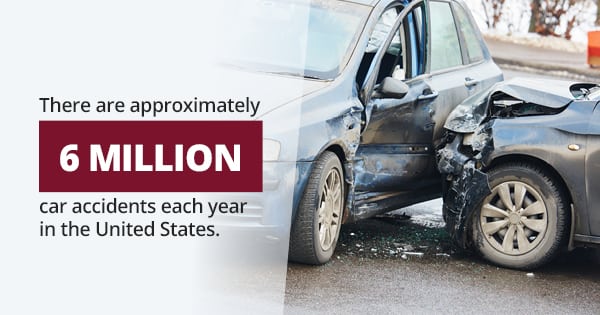
Dealing With Severe Pain After A Car Accident
There are approximately 6 million car accidents each year in the United States. Unfortunately, many of those accidents result in serious injuries or even fatalities. Because these accidents are so common, it’s important to know just how severe an injury can be if you’ve been involved in an auto accident yourself.
Hopefully this information will help you better understand the various types of common injuries after car accidents, and when you should seek additional medical attention.
Immediately after impact: No matter how fast you or another driver were moving at the moment of impact, serious injuries can occur instantaneously. The first thing you should do after any auto accident, from minor to severe, is get medical assistance. Hopefully emergency crews arrive on scene right away and you can get the help you need.
What body parts are at the highest risk?
Following any auto accident, just about every area of the body is at risk of being in pain. But there are three specific body parts that are at risk of being severely injured: the head, neck, and chest.
- Head Injuries — If your head suffered any impact during the accident, you’re going to need immediate medical assistance. Even if you think it was just a minor hit, you could be at risk of serious brain injuries down the line if your head was impacted in any way.
- Neck Injuries — Even the smallest of accidents can lead to chronic neck pain if left unattended. Whiplash is an extremely common symptom of car crashes, and your next could be at risk of serious pain in the future if you don’t get the right medical help.
- Chest Injuries — The chest is one of the most vulnerable body parts during a car accident. Because you are positioned just a few inches away from the steering wheel, your chest will likely come in contact with the wheel, dashboard, or shoulder harnesses upon impact. This impact can result in bruised, fractured, or broken rips, as well as internal organ issues and muscle strains.
Even if you’ve been cleared by medical professionals following an auto accident, you should still pay close attention to how your body feels and reacts in the days and weeks that follow. Chronic injuries can begin to show even weeks after a serious injury, which is why it’s essential to stay in contact with your doctor.
If you have any confusion regarding your rights after a car accident or if you want to file a complaint against anyone for the accident, contact Tampa personal injury lawyer, The Law Office of Michael Herron, for a free evaluation.
Call Now: (813) 258-4878
Any time you’re in a car accident, it’s important to seek medical help for any injuries you may be experiencing.
The information contained in this post does not replace medical advice.
Only a medical professional can assess the severity of your injuries, or make sure that you’re okay.
